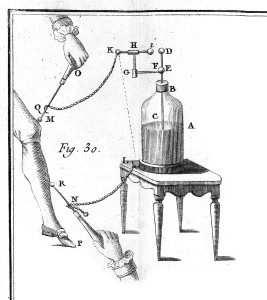
© Dreammasterphotographer | Dreamstime.com
Dear Thoughtful Pastor: I have visited a number of churches in the last few years. Often I wonder during the services, “When are they going to pray?” Every year on Good Friday, my mom made us sit still for three hours from noon to three. She reminded us that Jesus was on the cross. Why are those three hours important in the Christian church? Why don’t Christian churches grasp and view that time for special devotion?
As Good Friday is nearly here, I appreciate this question.
Earlier this week, I wrote about the challenge of Holy Week observances on my blog. A former pastor sent a note about an experience of hers. Several years ago when she was part of the clergy staff of a large church, she discovered that the youth director employed by the church had made plans to take the youth to an amusement park for the day. Her response: “I was horrified, and expressed my shock. I explained that Good Friday was observed as the day that Jesus died on the cross and my children would not be riding a roller coaster, they would be sitting in church with me, silently.”
According to the Biblical accounts of this day (Matthew 27, Mark 15, Luke 23, John 19), the actual crucifixion began around nine in the morning. From noon to three, darkness covered the land. At 3 pm, Jesus’ death was confirmed and his body released for burial. The Sabbath was quickly approaching and the work of the burial needed to be done before it began.
Over the years, the church developed multiple ways to acknowledge the sorrow of the events, offering prayers, prescribing fasting, creation of special services that are intentionally solemn and leave space to move into the darkness and loss represented by this day.
Most countries with significant Christian influence recognize the day as a legal holiday. Schools and businesses close so those who wish can take the time to observe it. It is not an official holiday in the US, although it is in 12 states (Connecticut, Delaware, Florida, Hawaii, Indiana, Kentucky, Louisiana, New Jersey, North Carolina, North Dakota, Tennessee and Texas). The financial markets will close on Friday, as will most schools and universities.
But what will not close? Amusement parks. Retail stores. Movie theaters. Shopping centers. Sporting venues. Gambling casinos. For most people, it’s a day off in early spring, often a lovely one to be outside, to catch up on routine tasks, to leave town for an extended weekend, particularly in areas where a longer spring break comes before or right after it.
Much like Christmas, at one time a strictly religious holiday, commercial forces rule the day. New clothes, bunnies, eggs, pink and purple ribbons, plastic grass stuffed into plastic baskets brimming with plastic eggs stuffed with sugar-rich treats and melting chocolate candies. The egg, a symbol of new life, now litters creation by its non-biodegradable composition.
If observed at all, we tend to go straight from the celebration of the joyful entrance of Jesus into Jerusalem on Palm Sunday to the celebration of the Resurrection.
We skip the last supper where Jesus washed the feet of the disciples, the plotting with Judas to kiss Jesus so he might be arrested, the perfidy of Jesus’ trials before Caiaphas and Pilate, the demands of the crowds to “Crucify him,” the betrayals and denials of Peter, the abandonment of nearly all the disciples, the darkness and agony of the cross, the offer of forgiveness given by Jesus to “those who just don’t know what they do,” the sadness of the burial, the despair of the Sabbath to follow.
And here is the problem for many who profess Christianity: Easter Sunday actually makes no sense at all unless one also goes under the unyielding blanket of black sorrow, betrayal, loss and death that Good Friday represents.

Credit: Wellcome Library, London. Wellcome Images
I read recently some fascinating research that suggests that most people today would rather be given an electric shock than have to sit still for 15 minutes alone with their thoughts. And that is 15 minutes, not three hours.
Can most of us imagine asking our children–and ourselves–to do that today? Especially when the lakeside beckons, when errands loom, when children’s friends clamor, “Come out and play” or “We’re all going to the amusement park/mall/entertainment center for the day. You CAN’T miss this!”
Can we be still and reflective for three hours with nothing but our thoughts, prayers and Bibles for companions?
Will we sadly reread these heartbreaking passages that remind all of our own willingness to betray others to save our own skins?
Shall we recognize ourselves in those who cried out “Crucify him”?
Wouldn’t we rather have an electric shock and then go out and play?
 All questions are welcome. You can email your questions to thoughtfulpastor@gmail.com, “like” her Facebook Page, use this form to send them or message her on Twitter. You can also send a question through conventional mail to the following address: Thoughtful Pastor, 314 E. Hickory St., Denton, TX, 76202.
All questions are welcome. You can email your questions to thoughtfulpastor@gmail.com, “like” her Facebook Page, use this form to send them or message her on Twitter. You can also send a question through conventional mail to the following address: Thoughtful Pastor, 314 E. Hickory St., Denton, TX, 76202.
[Note: a version of this column will appear in the Friday, March 25 2106 print and online editions of The Denton Record Chronicle.]

















